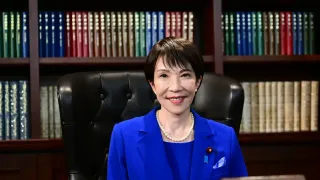November 4, 2016
Loving
Frank J. Avella READ TIME: 4 MIN.
It's hard to imagine that just 50 years ago it was illegal for interracial couples to marry in many Southern states, but that was indeed the case even though slavery was abolished an entire century earlier.
Writer-director Jeff Nichols ("Mud," "Take Shelter") addresses this shameful chapter in American history by telling the story of the couple whose case provided the landmark Supreme Court decision that legalized interracial marriage in all 50 states, once and for all.
The timeliness of "Loving" is quite sad, since we are reminded of prejudice every day in 2016, especially among Trump supporters who feel it's fine to voice their racist rhetoric. In addition, the next few Supreme Court appointments will decide the direction our country moves in when it comes to issues like civil rights, gay rights and abortion.
Nichols isn't as much interested in the historical aspects of the Lovings' story (not overtly, anyway), as he is in painting a personal picture of the couple at the center of the narrative.
"Loving" opens with Mildred (Ruth Negga) telling her boyfriend, Richard (Joel Edgerton) that she's pregnant. His almost immediate and pleased response is, "Good." Simple folk. Simple words. If it weren't for the period costumes and locations, it could be taking place in 2016, anywhere in the U.S. But it's 1958, and it's in Virginia.
The first half hour of the film establishes the Loving couple as just that, a loving couple, almost living in a utopia of sorts -- everyone enjoying life. There are occasional looks of disapproval, but for the most part all is well, and Richard has plans to build a house for Mildred on land he just purchased.
Richard asks Mildred to marry him. She accepts, and they drive to Washington, D.C. to do so. She has, tellingly, never been to a big city. Upon their return home, they're almost immediately dragged out in the middle of the night and arrested.
When Richard explains that they got married in D.C., the Sheriff disgustedly bellows, "That's no good here."
Richard does wonder how the authorities knew to arrest them, meaning someone in their inner circle had to have ratted them out, but it's never pursued in any tangible manner.
In order to avoid jail, the Lovings are forced to take a plea deal where they must leave the state and not return together for 25 years.
The scenes involving the Sheriff, his men, and the judge show just how upside-down-fucked-up the accepted way of thinking was in the South back then when it came to miscegenation. They truly believed that mixed race marriage went against the laws of God -- something that's hard to conceive of today.
Mildred and Richard move up to D.C., then return to have the child in Virginia (his mother is a midwife) and are arrested again, but released thanks to their lawyer (Bill Camp). They then journey back to D.C.
Over the next few years they have three children and establish a semi-comfortable life in D.C., but Mildred is never happy raising her kids there, so she writes to Robert Kennedy (then Attorney General) who passes the letter on to an ACLU lawyer (a miscast Nick Kroll) and, from there, the case slowly makes it way through the courts and, finally, to the Supreme Court.
Throughout, the Lovings remain fairly calm and easy going, focusing more on their everyday life than caring too much about the enormity of their decision to move ahead with the appeals.
In the midst of the process, the Life magazine photographer Grey Villet (Nichols' favorite Michael Shannon) arrives and captures the Lovings on camera. It's an interesting sequence, and I wish it had gone on longer so we could feel more of their interaction with Villet, a stranger sent to photograph them as a symbol of a changing world.
The strength of the film lies is in the two lead performances. Edgerton, one of the better peripheral actors working today, channels the most basic human emotions to play Richard. He adores his wife and kids and just wants to be left alone to lead his life. He's in no way an attention seeker. Richard is constantly told by those around him that he should "know better." His reaction is to rather blankly stare at whomever is delivering the line, as if to hint that he does; it's the people chiding him that are terribly misguided.
A particularly memorable moment has Richard's anxiety at peak level when a friend comes racing down his drive. He's battle scarred, and Edgerton reveals so much humanity in this moment it's palpable.
Negga matches him in subtly and potency. Hers is a beautifully textured and understated performance that merely hints at her desire to, perhaps, do a little more with her life, than society will allow her to. Mildred lives her life in a graceful and honorable way. There's a fortitude about her that commands respect.
But her values are paradoxical as well. She'd rather raise her kids in the "country" she grew up in, where it's perceived to be safer for her children, although the way of thinking in that "country" is actually a hell of a lot more dangerous for her kids on every level.
The film's production design, by Chad Keith, is period perfect. All tech credits help recreate the rural world of the 1960s south.
At times "Loving" feels too careful and delicate, but that's because Nichols' desire is to focus on the love story more than politics and social ramifications, giving it a lingering power and leaving the audience with filmic moments that stay with you long after the credits roll.
Did I want more verve and outrage from the characters and a smidge more of a spotlight on the machinations of the case? Yes. But I am also bringing my indignant 2016 sensibility to the film.






